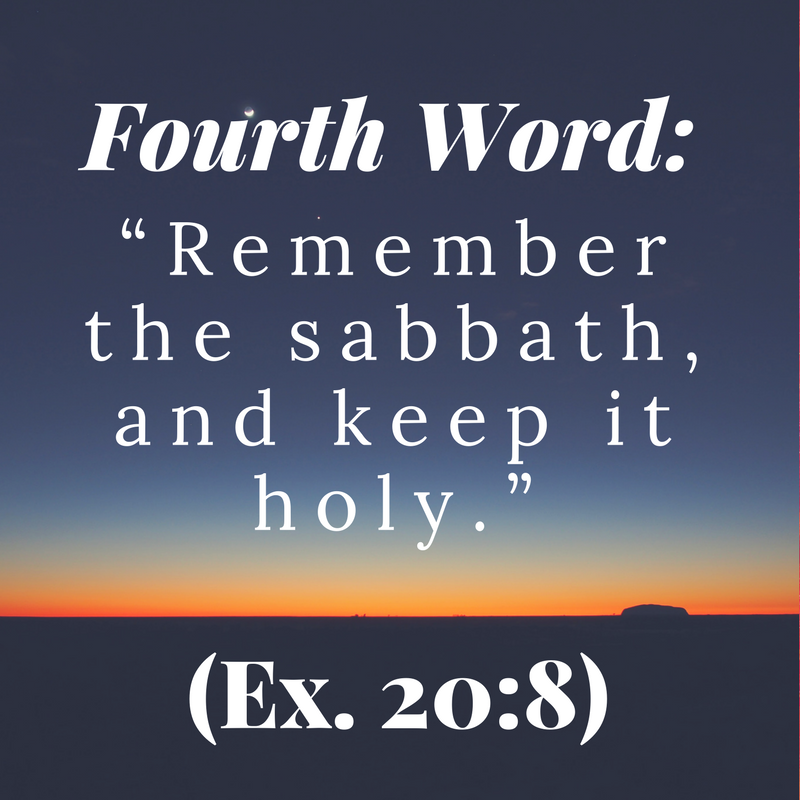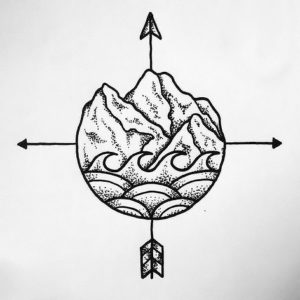God is guiding us out of the land of slavery into a place of freedom and love. This is what the 10 Commandments are for: They orient us to freedom.
Fourth Word
“Remember the sabbath day, and keep it holy.” (Ex. 20:8)
Some say…
Some say this word reminds us that we are not the masters of our time, that we are commanded to stop working so that we might entrust our lives to God. Only God controls time (and space), and we need to submit ourselves to God and the rhythm of creation.
We stop working on the Sabbath. That’s all there is to it.
But what if…
But what if the fourth word isn’t mainly about resting after our work? What if it was about working after resting?
Or said the other way, we are not called to rest from work through the Sabbath, but to rest for work—the work of relationship with God and with others, and for the world.
This would offer us a completely different orientation of life.
Word of Life: Re-Creating
It is interesting—and insightful—that God created humanity on the sixth day. According to the book of Genesis, the first full day of human existence is the day of rest, the Sabbath. It is from this first day of rest that humanity then begins to work.
Rest is for working. But we usually have it backward, that rest is from working. In fact, we could even say that resting is for ruling. And in this world run ragged, resting is a process of recreation, of re-creation.
Read more here, but listen to how John Walton (The Lost World of Genesis One, 73) breaks it down:
“Here the ‘dwelling place’ of God translates a term that describes the tabernacle and temple, and this is where his footstool (the ark) is located. This also shows that the text is referring to his dwelling place as this throne room and the place of his rule (because of the footstool). In verse 8 the “footstool” is paralleled by the ark, and the temple (“dwelling place”) is paralleled with “resting place” (menuha). This demonstrates that the temple is the place where he rests. In verse 13 the text again refers to his dwelling in Zion, thus referring to the temple. Then verse 14 uses “resting place” (menuha) again identifying it as the place where he is enthroned. Thus, this Psalm pulls together the ideas of diving rest, temple and enthronement. God’s “ceasing” (sabat) on the seventh day in Genesis 2:2 leads to his “rest” (nuha), associated with the seventh day in Exodus 20:11. His “rest” is located in his “resting place” (menuha) in Psalm 132, which also identifies it as the temple from which he rules. After creation, God takes up his rest and rules from his residence.”
Freedom to Rest and Work
This fourth word gives us the freedom to jump off our addiction to accomplishments and achievements so that we over-work ourselves and then enter into a shallow rest.
Instead we are called and created to rest so that we can work. Work and rest are not polar opposites that we need to balance.
Rather they are an integrated whole of resting in God’s presence and then working for God’s purposes (which, incidentally is the theme of the book I’m working on…you can get a taster here).
Are we living in such a way that God’s presence and purpose are fully integrated and expressed in our lives? Or are we slaves either to endless work or mindless rest?


